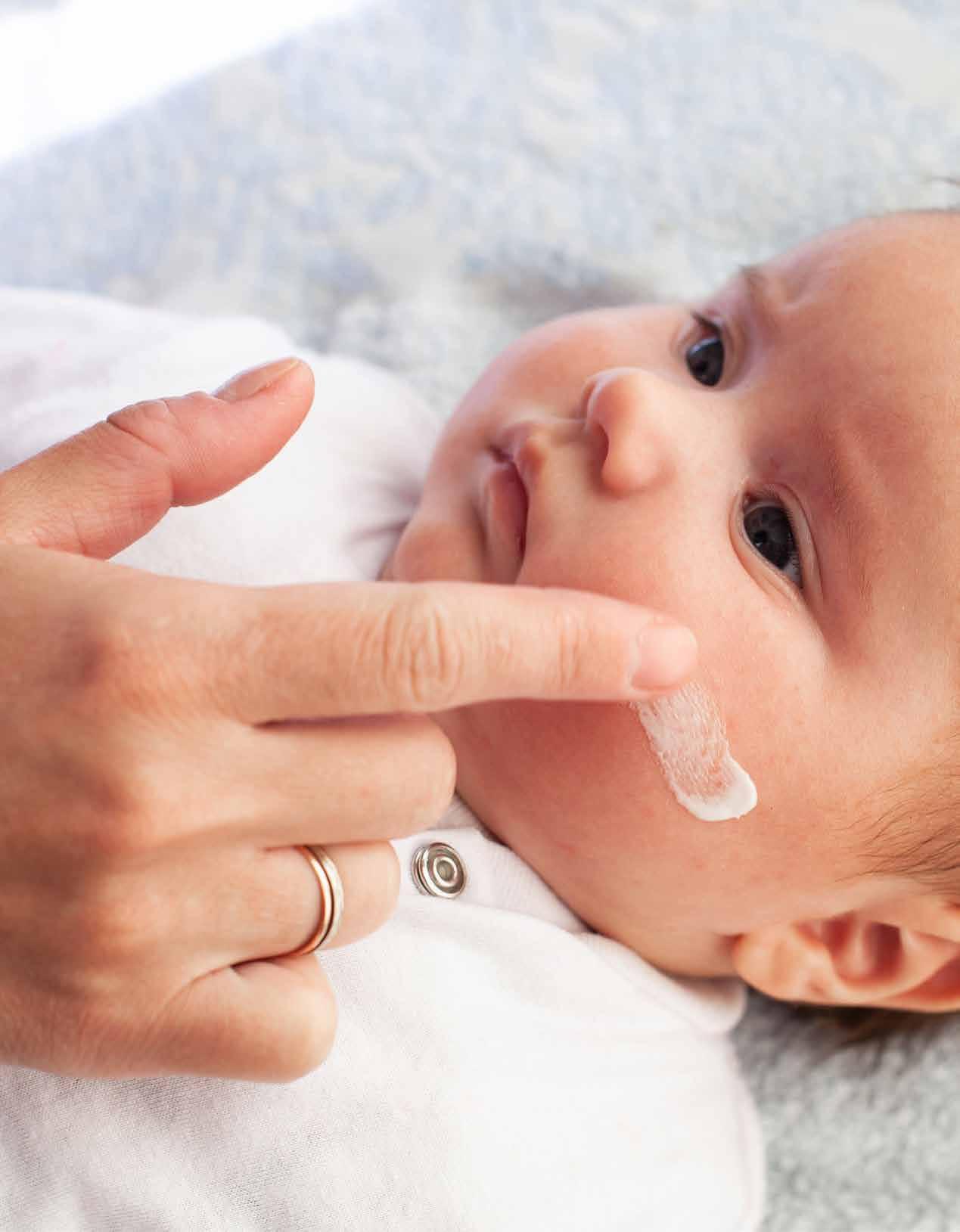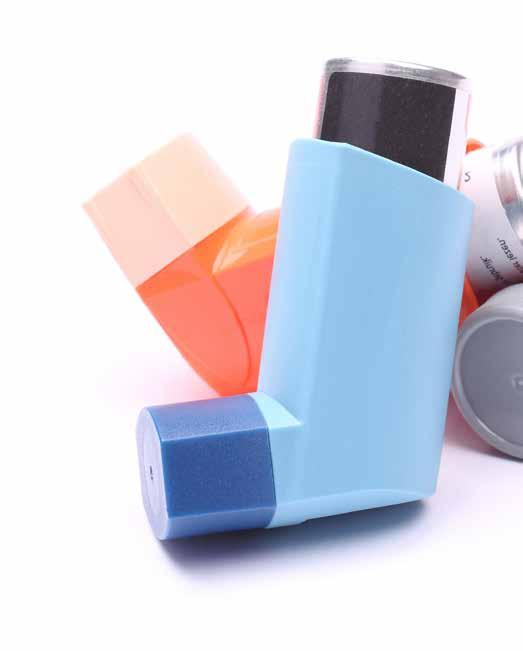
27 minute read
NEWS
IMPORTANT NOTICE IPNA ANNUAL GENERAL
MEETING to be held on Saturday 14th November 2020.
The AGM will be facilitated virtually on this occasion and full details regarding same will be circulated to all members in advance.
MOTIONS FOR AGM 2020 RECEIVED
The National Executive Committee would like to propose the motion that:
The title “Irish Practice Nurses Association” (IPNA) be reviewed and replaced with a title which reflects the term General Practice Nurse and the educational objectives of the organisation. To be discussed at AGM 2020.
IPNA WEBSITE
The IPNA website is currently undergoing refurbishment; we are looking forward to a more user friendly, and easy to navigate website.
In the meantime, please do not hesitate to get in touch with Caroline Daughton, IPNA administrator, if you require any information
Email: admin@irishpracticenurses.ie.
IPNA MEMBERSHIP SECRETARY
The NEC regret to inform members that Winnie Quigley, Membership Secretary, is stepping down. Winnie was appointed to the position in August 2018 and despite holding the position for a relatively short duration has made significant improvements for members in relation to their membership, including ensuring an online renewal system that is user friendly, seamless and far more efficient. The NEC would like to thank Winnie for all her support and wish her the very best in the future.
NEWS FROM IPNA BRANCHES COUNTRYWIDE
Please email your branch news to Priscilla Lynch, priscilla@mindo.ie
LOUTH/MEATH
GRÁINNE MURPHY
The final meeting for the Louth Meath branch took place on 27th February 2020, which coincided with the first confirmed case of Covid-19 in Ireland. Following a lively educational meeting with Paul Stoneman we were fortunate to hold the branch AGM. Our treasurer Jackie O Connell presented the branch accounts. Marie Colgan Cantwell agreed to take up the position of vice chairperson, with a view to become chairperson at a later date. We hope that having the opportunity to share the role will encourage members to take an active role in the running of the branch. Over the months of the pandemic, MLearning became a good source of information and some valuable topics were discussed.
The branch is planning to run its first zoom meeting on 24th September. Our sponsor is Amanda Breen from Astra Zeneca. Hopefully this new initiative will run smoothly. The topic selected is “The Link between Heart Disease and Diabetes”. This theme was chosen, as many of us embark on chronic disease management in primary care without much preparation. This forum for meetings will undoubtedly become the way forward and will provide some continuous professional education from the comfort and safety of our own homes.
We look forward to a time when it is safe to meet in person and enjoy a social evening together. If there are any nurses working in general practice who are paid up members of other branches and would like to access the Louth Meath zoom meetings, please get in touch and I can send you the link. Also, if you know of any general practice nurses considering joining the IPNA, and who would like to access one of our meetings to get a sense of what the organisation entails please share my details. Any lapsed members who wish to re-join are very welcome and this format may prove more suitable than travelling to meetings.
On behalf of the Louth Meath branch I would like to wish Niamh Cahill all the very best, as this is her final edition of NIGP. She has done a superb job as editor and has always been efficient and dependable. Your replacement has big shoes to fill.
GPs DOCTORS HAVE ‘DUTY’ TO FOLLOW COVID-19 PUBLIC HEALTH GUIDELINES
The President of the Irish Medical Council, Dr Rita Doyle, has said that doctors have a professional and ethical duty, and a responsibility to both their patients and wider society, in following and promoting Covid-19 public health guidelines.
The Guide to Professional Conduct and Ethics for Registered Medical Practitioners sets out the principles of professional practice that all registered doctors should follow for the benefit of their patients, themselves, colleagues and the wider public.
This includes having a duty to ensure compliance with all laws and regulations relating to their practice. This also includes ensuring doctors promote a culture of patient safety within the context of the wider health system.
Doctors also have responsibilities when it comes to posting on social media. The Guide to Professional Conduct and Ethics for Registered Medical Practitioners states: “You should always think about the possible impact on colleagues, patients or the public’s perception of the profession, before publishing comments on social media sites”.
Dr Doyle said: “As we enter our seventh month with Covid-19 impacting our daily lives and as we look ahead to what may be a very challenging winter for the health services, we must all, as a nation, ensure we follow the guidance from our public health experts and NPHET.”
“Doctors must continue to advocate for their patients by actively promoting the public health guidance, especially the three core actions of hand washing, social distancing and the wearing of face coverings.
“We all have a role to play as citizens. Follow the guidelines and know the symptoms. If displaying any signs or symptoms of Covid-19 restrict your movements and contact your GP. We must all redouble our efforts and follow the guidance,” concluded Dr Doyle.
COVID-19 REDEPLOYMENTS SET TO CONTINUE UNTIL YEAR END
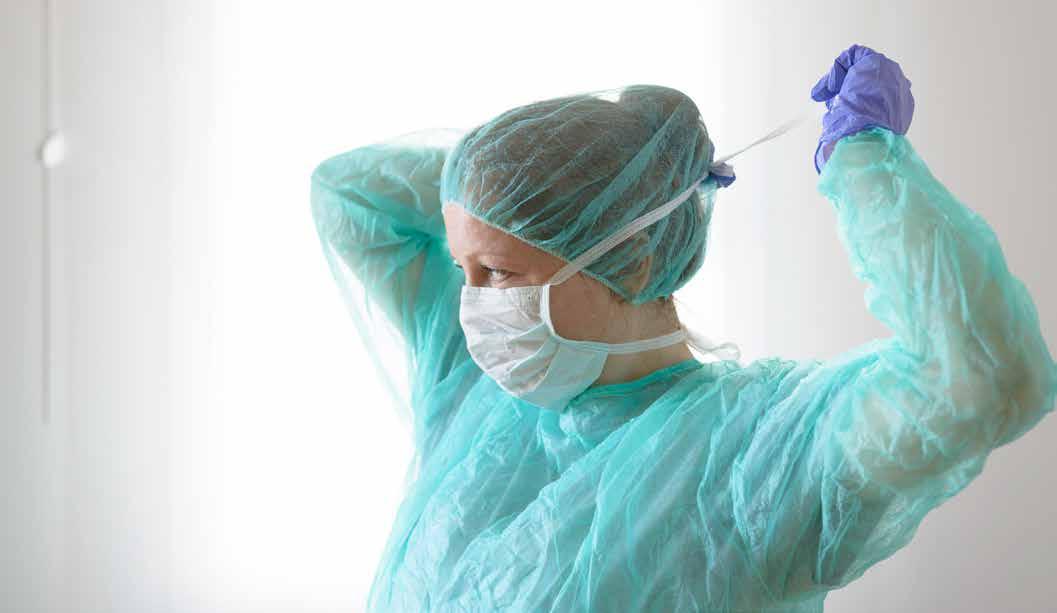
All temporary staff redeployments to support regional departments of public health and the Health Protection Surveillance Centre (HPSC) in their response to Covid-19 have been extended until the end of 2020, it has emerged.
In addition to the above, staff originally redeployed but who had later been recalled to their usual posts are to “be made available to public health for recall with immediate effect”.
The actions were detailed in a letter dated 11th August to HSE managers who have had originally provided staff for redeployment.
The letter, sent by Dr Lorraine Doherty, HSE National Clinical Director Health Protection, seeks the support of managers in implementing the measures.
At the time, it was noted that new cases remained “relatively low” compared to the peak of the pandemic, but that 183 open outbreaks were being managed.
A Public Health Pandemic Workforce Plan has been developed by the HSE, the letter advises, of which redeployments are an “essential component”.
The letter states, “It is expected that resources will be secured” to stabilise the pandemic response, suggesting that permanent support for public health remains lacking.
Redeployments will be used to scale up and down capacity “as required”, as changing patterns of the disease occur over the coming months, according to the letter.
Sources have said that while redeployments are taking place theoretically, they do not always materialise in practice.
Redeployed staff are slow to return to public health posts, it is understood, because they are reluctant to leave their usual roles.
Furthermore, some staff redeployed once again to public health are returning for shorter periods than previously, at only 0.6 whole time equivalent (WTE), meaning redeployed staff will remain partly working in their usual role 0.4 WTE of the time.
Public health departments nationally are already chronically under-resourced and aside from redeployments, more permanent resources have yet to be secured almost six months into the pandemic.
It is understood that the redeployments to public health were primarily taken from community healthcare organisations (CHOs) and national services, such as Health and Wellbeing.
MENTAL HEALTH INCREASE IN PATIENTS WAITING FOR CIPC APPOINTMENT
A HSE counselling service for people with mild to moderate psychological difficulties has seen a significant increase in the number of people waiting for an appointment since the Covid-19 pandemic emerged.
At the end of March, 18 per cent were waiting more than six months for an appointment with the Counselling in Primary Care (CIPC) Service. This increased to 38 per cent at the end of June, new figures show.
The pandemic has resulted in a change in the nature of referrals being made, with the impact of the virus evident in the reasons for referral, which include bereavement, health anxiety, financial stress, relationship difficulties and domestic violence, according to a HSE spokeswoman.
A significant factor contributing to the increased waiting time was the impact of restrictions on face to face appointments, which were paused in March.
The service remains unable to provide face to face appointments “in some areas”. Furthermore, certain staff were redeployed to assist in the response to the pandemic, resulting in a pause in service delivery in some parts of the country.
“A significant proportion of clients opted to wait for face to face counselling rather than avail of counselling by phone or video, despite the longer waiting time,” said a spokeswoman.
When face to face services were paused, structured phone counselling and online video counselling was introduced to mitigate the impact of the pause and reduce disruption to clients in counselling.
Challenges providing counselling to individuals who require interpreters and for those unable to avail of phone or video counselling due to lack

of access to broadband, no access to a mobile device, or privacy or confidentiality issues have emerged.
A drop in new referrals to the service following the introduction of lockdown measures in March occurred, with monthly referral rates in April and May less than half that for the same period in 2019.
The referral pathway to the service is through GPs, and presentations to GP surgeries dropped significantly during the height of the pandemic in April and May. Recent figures for June indicate an increase in referrals towards pre-pandemic levels.
A HSE spokeswoman explained that “GP visits dropped significantly at the height of the COVID pandemic and this had a knock on effect on new referrals to CIPC as many people were not accessing their GP.”
Up to the end of June, almost 4,500 patients had been seen by the service this year. Around 4,800 patients were discharged up to the end of June.
The service, established in 2013, is delivered by 200 full time and part time counsellors nationally.
Normally patients are seen weekly. They are usually offered their second appointment a week after their first unless the client chooses otherwise.
A HSE spokewoman said the CIPC’s experience is “in line with international emergency experience, which indicates that as the acute medical crisis passes, the psychosocial impact of the pandemic becomes more apparent”.
“While the majority of the population will recover in the short to medium term without professional intervention a significant proportion of people are expected to experience longer lasting mental distress with increases in demand for formal psychosocial supports such as CIPC, as a result.”
MEDICATION SAFETY EMA REVOKES MARKETING AUTHORISATION OF ULIPRISTAL ACETATE FOR UTERINE FIBROIDS
A review by European Medicines Agency (EMA) safety committee (PRAC) has confirmed that 5-mg ulipristal acetate (Esmya and generic medicines) used for the treatment of symptoms of uterine fibroids can cause liver injury, including the need for liver transplantation.
The safety committee has therefore recommended the revocation of the marketing authorisations of these medicines.
The committee considered all the available evidence in its review, including reported cases of serious liver injury.
Patient and healthcare professional representatives, including experts in gynaecology, were also consulted.
Since it was not possible to identify which patients were most at risk or measures that could reduce the risk, the PRAC concluded that the risks of these medicines outweighed their benefits and that they should not be marketed in the EU.
The use of 5-mg ulipristal acetate medicines for uterine fibroids had already been suspended as a precautionary measure while awaiting the outcome of this review.
Ulipristal acetate is also authorised as a singledose medicine for emergency contraception. This recommendation does not affect the single-dose ulipristal acetate emergency contraceptive (ellaOne and other trade names) and there is no concern about liver injury with these medicines.
The journey to triple protection in T2D starts at the kidneys
Choose INVOKANA – the only SGLT2i licensed to offer your T2D patients triple protection against renal events,
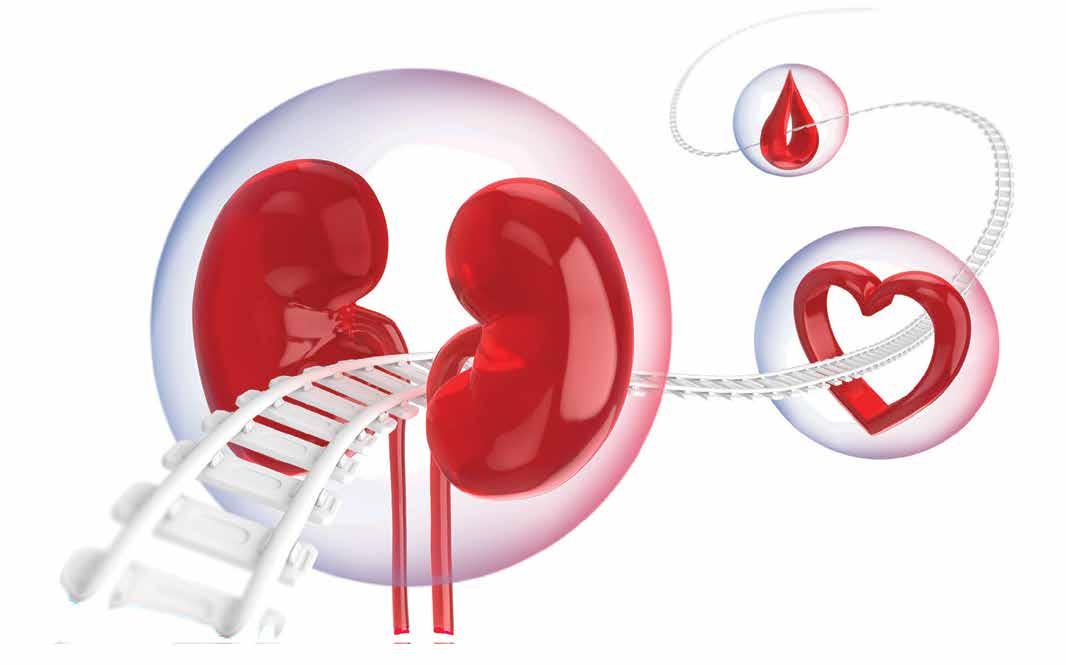

CV events and elevated HbA1c 1–4
LICENCE EXTENSION
INVOKANA now includes evidence for the treatment of diabetic kidney disease 1
INVOKANA ® (canagliflozin) 100 mg & 300 mg film-coated tablets. PRESCRIBING INFORMATION. REPUBLIC OF IRELAND. Please refer to the Summary of Product Characteristics (SmPC) before
prescribing. INDICATIONS: The treatment of adults with insufficiently controlled type 2 diabetes mellitus as an adjunct to diet and exercise as monotherapy when metformin is considered inappropriate due to intolerance or contraindications, or in addition to other medicinal products for the treatment of diabetes. DOSAGE & ADMINISTRATION: Adults: recommended starting dose: 100 mg once daily. In patients tolerating this dose and with eGFR ≥ 60 mL/min/1.73 m 2 needing tighter glycaemic control, dose can be increased to 300 mg once daily. For oral use, swallow whole. Caution increasing dose in patients ≥ 75 years old, with known cardiovascular disease or for whom initial canagliflozininduced diuresis is a risk. Correct volume depletion prior to initiation. When add-on, consider lower dose of insulin or insulin secretagogue to reduce risk of hypoglycaemia. Children: no data available. Elderly: consider renal function and risk of volume depletion. Renal impairment: for the treatment of diabetic kidney disease (DKD) as add on to standard of care (SOC) (e.g. ACE inhibitors or ARBs), initiate with 100 mg dose. The glycaemic lowering efficacy of canagliflozin is reduced in patients with moderate renal impairment and likely absent in severe renal impairment. If eGFR falls below 60 mL/min/1.73 m 2 during treatment, adjust or maintain dose at 100 mg once daily.
eGFR(mL/min/1.73m 2 ) or CrCl (mL/min)
45 to < 60 a
30 to < 45 a,b
< 30 a,b Total daily dose of canagliflozin
Initiate with 100 mg If tolerating 100 mg and needing additional glycaemic control, increase dose to 300 mg Initiate with 100 mg If already taking Invokana – continue 100 mg Initiate with 100 mg If already taking Invokana – continue 100 mg Do not initiate If already taking Invokana – continue 100 mg c
a Consider addition of other anti-hyperglycaemic agents if further glycaemic control is needed b With urinary albumin/creatinine ratio > 300 mg/g c Continue until dialysis or renal transplantation Hepatic impairment: mild or moderate; no dose adjustment. Severe; not studied, not recommended. Hepatic impairment: mild or moderate; no dose adjustment. Severe; not studied, not recommended. CONTRAINDICATIONS: Hypersensitivity to active substance or any excipient. SPECIAL WARNINGS & PRECAUTIONS: Not for use in type 1 diabetes. Renal impairment: regardless of pretreatment, patients on canagliflozin had an initial fall in eGFR that attenuated over time. eGFR < 60 mL/min/1.73 m 2 : higher incidence of adverse reactions associated with volume depletion particularly with 300 mg dose; more events of elevated potassium; greater increases in serum creatinine and blood urea nitrogen (BUN); limit dose to 100 mg once daily. Not studied in severe renal impairment. Monitor renal function prior to initiation and at least annually. Volume depletion: caution in patients for whom a canagliflozin- induced drop in blood pressure is a risk (e.g. known cardiovascular disease, eGFR < 60 mL/min/1.73 m 2 , anti-hypertensive therapy with history of hypotension, on diuretics or elderly). Not recommended with loop diuretics or in volume depleted patients. Monitor volume status and serum electrolytes. Diabetic ketoacidosis (DKA): rare DKA cases reported, including life-threatening and fatal. Presentation may be atypical (blood glucose <14mmol/L). Risk appears higher in patients with moderate to severe decrease in renal function who require insulin. Consider DKA in event of non-specific symptoms. If DKA is suspected or diagnosed, discontinue Invokana treatment immediately. Interrupt treatment in patients who are undergoing major surgical procedures or have acute serious medical illnesses. Monitoring of (preferably blood) ketone levels is recommended in these patients. Consider risk factors for development of DKA before initiating Invokana treatment. Elevated haematocrit: careful monitoring if already elevated. Genital mycotic infections: risk in male and female patients, particularly in those with a history of GMI. Lower limb amputation: Consider risk factors before initiating. Monitor patients with a higher risk of amputation events, counsel on routine preventative foot care and adequate hydration. Consider discontinuing Invokana when events preceding amputation occur (e.g. lowerextremity skin ulcer, infection, osteomyelitis or gangrene). Necrotising fasciitis of the perineum (Fournier’s gangrene): post-marketing cases reported with SGLT2 inhibitors. Rare but serious, patients should seek medical attention if experiencing symptoms including pain, tenderness, erythema, genital/perineal swelling, fever, malaise. If Fournier’s gangrene suspected, Invokana should be discontinued, and prompt treatment instituted. Urine laboratory assessment: glucose in urine due to mechanism of action. Lactose intolerance: do not use in patients with galactose intolerance, total lactase deficiency or glucose-galactose malabsorption. Sodium: essentially “sodium-free”. INTERACTIONS: Diuretics: may increase risk of dehydration and hypotension. Insulin and insulin secretagogues: risk of hypoglycaemia; consider lower dose of insulin or insulin secretagogue. Effects of other medicines on Invokana: Enzyme inducers (e.g. St. John’s wort, rifampicin, barbiturates, phenytoin, carbamazepine, ritonavir, efavirenz) may decrease exposure of canagliflozin; monitor glycaemic control. Consider dose increase to 300 mg if administered with UGT enzyme inducer. Cholestyramine may reduce canagliflozin exposure; take canagliflozin at least 1 hour before or 4-6 hours after a bile acid sequestrant. Effects of Invokana on other medicines: Monitor patients on digoxin, other cardiac glycosides, dabigatran. Inhibition of Breast Cancer Resistance Protein cannot be excluded; possible increased exposure of drugs transported by BCRP (e.g. rosuvastatin and some anti-cancer agents). PREGNANCY: No human data. Not recommended. LACTATION: Unknown if excreted in human milk. Should not be used during breast-feeding. SIDE EFFECTS: Very common (≥1/10): vulvovaginal candidiasis, hypoglycaemia in combination with insulin or sulphonylurea. Common (≥1/100 to <1/10): balanitis or balanoposthitis, urinary tract infection (including pyelonephritis and urosepsis), constipation, thirst, nausea, polyuria or pollakiuria, dyslipidemia, haematocrit increased. Uncommon (<1/100) but potentially serious: necrotising fasciitis of the perineum (Fournier’s gangrene) (frequency not known), anaphylactic reaction, diabetic ketoacidosis, syncope, hypotension, orthostatic hypotension, urticaria, angioedema, bone fracture, renal failure (mainly in the context of volume depletion), lower limb amputations (mainly of the toe and midfoot.
Refer to SmPC for details and other side effects. LEGAL CATEGORY:
POM. PACK SIZES & MARKETING AUTHORISATION NUMBER(S): Invokana 100 mg film-coated tablets: 30 tablets; EU/1/13/884/002. Invokana 300 mg film-coated tablets: 30 tablets; EU/1/13/884/006. MARKETING AUTHORISATION HOLDER: Janssen-Cilag International NV, Turnhoutseweg 30, B-2340 Beerse, Belgium. ® INVOKANA is a registered trade mark of Janssen-Cilag International NV and is used under licence. © 2020 Napp Pharmaceuticals Limited.
Adverse events should be reported to: HPRA Pharmacovigilance, Earlsfort Terrace, IRL – Dublin 2; Tel: +353 1 6764971; Fax: +353 1 6762517. Website: www.hpra.ie; E-mail: medsafety@hpra.ie. Adverse events should also be reported to Mundipharma Pharmaceuticals Limited on drugsafetyJNJ@mundipharma-rd.eu or by phone on 01 2063800 (1800 991830 outside office hours)
FURTHER INFORMATION IS AVAILABLE FROM: Mundipharma Pharmaceuticals Limited, Millbank House, Arkle Road, Sandyford, Dublin 18. For medical information enquiries, please contact medicalinformation@ mundipharma.ie UK/INV-18203(3) IRE/INVK-20206a Date of Preparation July 2020
References: 1. Invokana ® Summary of Product Characteristics. Mundipharma 2020. 2. Dapagliflozin Summary of Product Characteristics. AstraZeneca 2019. 3. Empagliflozin Summary of Product Characteristics. Boehringer Ingelheim 2019. 4. Ertugliflozin Summary of Product Characteristics. MSD 2019.
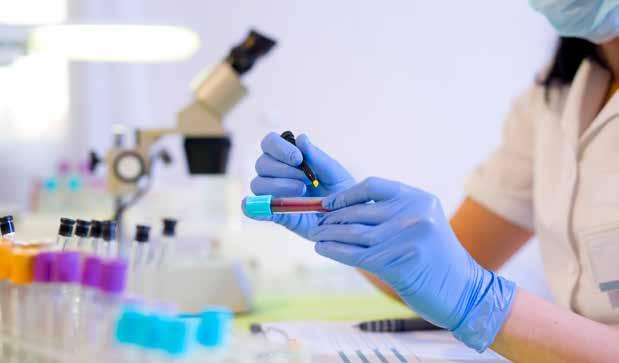
RESEARCH SCIENTISTS USE BLOOD TEST TO PREDICT WHO IS LIKELY TO DEVELOP PSYCHOTIC DISORDERS
Scientists have discovered that testing the levels of certain proteins in blood samples can predict whether a person at risk of psychosis is likely to develop a psychotic disorder years later.
The study is published in JAMA Psychiatry and was led by researchers from the RCSI University of Medicine and Health Sciences.
Based on certain criteria, such as mild or brief psychotic symptoms, some people are considered to be clinically at high risk of developing a psychotic disorder, such as schizophrenia. However, only 20 to 30 per cent of these people will actually go on to develop a psychotic disorder.
The researchers analysed blood samples taken from people at clinical high risk of psychosis. These individuals were followed up for several years to see who did and did not develop a psychotic disorder.
After assessing the proteins in blood samples and using machine learning to analyse this data, the scientists were able to find patterns of proteins in the early blood samples that could predict who did and did not develop a psychotic disorder at follow-up.
Many of these proteins are involved in inflammation, suggesting that there are early changes in the immune system in people who go on to develop a psychotic disorder. The findings also suggest that it is possible to predict their outcomes using blood samples taken several years in advance.
The most accurate test was based on the 10 most predictive proteins. It correctly identified those who would go on to develop a psychotic disorder in 93 per cent of high-risk cases, and it correctly identified those who would not in 80 per cent of cases.
“Ideally, we would like to prevent psychotic disorders, but that requires being able to accurately identify who is most at risk,” said Professor David Cotter, the study’s senior and corresponding author and professor of molecular psychiatry at RCSI.
“Our research has shown that, with help from machine learning, analysis of protein levels in blood samples can predict who is at truly at risk and could possibly benefit from preventive treatments. We now need to study these markers in other people at high risk of psychosis to confirm these findings.”
COVID-19 LOW NUMBER OF COVID-19 AMONG DRUG USERS LEAVES DOCTORS 'BAFFLED'
Doctors working in opioid substitution clinics (OST) have been left baffled by the low number of Covid-19 cases among people who use drugs.
According to the HPSC, which collects data on “homeless/those with addictions” there have been four outbreaks comprising 15 cases among this cohort.
The HPSC does not collect data on the number of individual Covid-19 cases in this patient group outside of outbreaks, but according to doctors the number of cases has been “surprisingly” low.
Dr Bobby Smyth, Consultant Child and Adolescent Psychiatrist with the HSE Adolescent Addiction Service, said he understands there has been a “very small number of cases amongst adult clients”.
“Hopefully, the fact that the service succeeded in continuing to provide core aspects of treatment to clients, while adhering to public health advice on strategies to minimise Covid transmission in clinic settings, contributed to this.”
Dr Garrett McGovern, a Dublin based GP specialising in substance abuse, works in several drug clinics and community based programmes in the city centre.
He said he has been “blown over” by the low number of Covid-19 cases among people who use drugs.
There has been a “very low number of cases contracting Covid-19", he said.
Due to the complex healthcare needs and conditions among people who use drugs, doctors had expected patients to contract the virus in high numbers.
But “the opposite happened”, he said, “we have seen very little Covid among this group, you could count on one hand the numbers.”
He continued: “We can’t explain it. It’s surprised us as we thought we would be inundated with cases”.
According to the European Monitoring Centre for Drugs and Drug Addiction (EMCDDA), because of the high prevalence of chronic medical conditions among drug users many are at particular risk for serious respiratory illness if they get infected with Covid-19.
“Risks are increased by the high level of physical and psychological comorbidity found among some people who use drugs, the fact that drug problems are often more common in marginalised communities, and the stigmatisation that people who use drugs often experience.
“The current public health crisis raises serious additional concerns for the wellbeing of people who use drugs, ensuring service continuity for those with drug problems, and the protection of those offering care and support for this population.”
DIABETES RESEARCH FINDS UPTAKE OF INSULIN PUMP THERAPY IS LOW IN IRELAND
New research has identified that insufficient structure of the health service, lack of awareness and individual preferences are among barriers for adults with type 1 diabetes in getting insulin pump therapy.
The study, led by researchers from RCSI University of Medicine and Health Sciences, is published in the current edition of Acta Diabetologica.
This research builds on previous studies by RCSI researchers, which showed that people with type 1 diabetes in Ireland use insulin pump therapy at lower rates when compared internationally and there is an unequal availability of insulin pump therapy in Irish adult diabetes clinics.
Even though insulin pump therapy is recommended as a first-choice therapy for pre-schoolers and is beneficial for people with type 1 diabetes of all ages, only 10.5 per cent of people with type 1 diabetes in Ireland are using a pump to administer their insulin.
This compares significantly lower to the average uptake in Nordic, Central and Western countries, which was 15–20 per cent in 2010.
Regional disparities in insulin pump use were found, with uptake as low as 2 per cent among adults in Roscommon compared to 9.6 per cent in Kildare. One-third of Irish adult clinics, usually in rural areas, do not offer any type of insulin pump therapy support, and less than a half provides training to commence the therapy.
To identify the reasons for why uptake is lower in Ireland, the researchers conducted 21 interviews and four focus groups among people with type 1 diabetes, healthcare professionals and other key stakeholders.
The same topics were discussed in all groups and aligned with four main themes: awareness, structure, capacity and impact of an individual (a person with diabetes or healthcare professional). The main finding was that if the structure of the health service is insufficient, the quality of care is not standardized and capacity is poor, the uptake of insulin pump therapy is more reliant on the individual’s interest, leadership skills, willingness and motivation.
“These factors may make the regional differences in accessing diabetes related technology and the quality of care more evident,” said Dr Katarzyna Gajewska, the study’s lead author and HRB PhD scholar in population health and health service research at RCSI.
“The results of this study may inform healthcare professionals and policy makers regarding gaps in the delivery of diabetes care. Solutions are needed to reduce the disparities in health service provision in the countries where reimbursement of diabetes technology is offered. Such steps may include the development of national guidelines, models of care, and structured approaches to provide equal access to insulin pump therapy across the country.”
EDUCATION ICGP ‘FRUSTRATED’ AT LACK OF ACTION ON TRANSFER OF GP TRAINING

CEO of the ICGP Mr Fintan Foy has said he is “frustrated” that the planned transfer of responsibility for GP training from the HSE to the ICGP has yet to take place.
In a statement, Mr Foy said discussions on the matter had occurred between both parties in recent weeks, with a partial transfer of training expected by the end of 2020.
While admitting that he was pleased talks had yielded progress, he expressed frustration that the matter, which has been under discussion for several years now, has yet to be resolved.
“Discussions and negotiations have continued during the summer with all key stakeholders to move towards resolving the industrial relations issues between Programme Directors and the HSE,” said Mr Foy.
“From an ICGP perspective, while we are frustrated that we are not at the point where the transfer can take place, we are very pleased with the progress that has been made and the commitment to complete same in the coming weeks.
“Once the IR issues have been resolved, the College will then move towards implementation of the transfer of training from the HSE to the College. We would hope that a partial transfer is completed by the end of this year and the full transfer is completed by June 2021.”
Clarity surrounding the employment status of programme directors and assistant programme directors affected by the proposed transfer of GP training is due by the end of 2020.
The transfer cannot conclude until a decision has been reached on the employment rights and status of directors.
The ICGP oversees GP training in Ireland, accrediting the training schemes and issuing certificates of membership, but training is currently delivered by the HSE Primary Care Division through a network of 14 training schemes nationwide.
When completed, the ICGP will be responsible for the delivery and supervision of standards of GP training.
BUDGET CANCER SOCIETY CALLS FOR €30 MILLION
The Irish Cancer Society has called on the Government to invest €30 million in cancer services in the upcoming budget.
The society’s pre-Budget submission outlines the need for €20 million in ring-fenced funding for the National Cancer Strategy and €10 million to address backlogs in cancer services.
Irish Cancer Society Director of Advocacy Rachel Morrogh said: “Sadly we have had almost no money dedicated to the implementation of the National Cancer Strategy over recent years. The lack of Government funding has meant a lack of investment in innovation, new services and addressing unmet needs of cancer patients – instead cancer services have been stretched to the point of breaking. This needs to change.
“The lack of funding for cancer has led to missed performance targets, waiting lists, unfilled posts and under-developed services. These were all problems in cancer services pre-Covid-19, and the pandemic has only made things worse. Continuing to demand that healthcare professionals and cancer services do more with less will ultimately impact negatively on patients.
“Budget 2021 is an opportunity to claw back some of the ground that has been lost due to underfunding in recent years. Over 9,000 people die from cancer every year in Ireland and we want to ensure the National Cancer Strategy meets its target of being in the top quarter for five-year survival among EU member states.
“The stark choice is that either proper funding is provided to resource the National Cancer Strategy, which would both save and improve the lives of struggling cancer patients all around the country, or the pattern of underfunding continues, and services and healthcare professionals remain overwhelmed, leading to the risk of worse outcomes for patients,” Ms Morrogh concluded.
CERVICAL CHECK MINISTER FOR HEALTH COMMITS TO ADDITIONAL FUNDING FOR 221+ GROUP

Minister for Health Stephen Donnelly has committed to providing additional funding to the 221+ Group beyond the current agreement.
The assurance was given by Minister Donnelly at a recent meeting with representatives of the 221+ Group, the CervicalCheck patients support group; the Marie Keating Foundation and the Irish Cancer Society.
The Department of Health signed a grant agreement in 2018 for the establishment of a CervicalCheck Patient Support Group, which runs up to end August 2021. Details of the additional funding will be announced in due course.
At the meeting, the Minister committed to appointing a second patient representative from the 221+ group to the CervicalCheck Steering committee. The membership of the Committee is drawn from across a variety of organisations, such as the Department of Health, the HSE, the Irish Cancer Society, the RCPI and the ICGP.
The Minister for Health said: “I am pleased to announce that I am committed to approving funding for the 221+ Support Group beyond August 2021. This funding will support the 221+ Group going forward so that it can continue its very important work in assisting patients and next of kin of those directly affected by the CervicalCheck issues through the provision of information, advice and support. “I would like to acknowledge the important contribution that the 221+ Group make, ensuring that the voices of women and families affected are heard in the delivery of our National Screening Services. I am looking forward to working with the group to ensure that Ireland continues on the journey to best-in-class population health screening services for cervical cancer.
“I am fully committed to ensuring and supporting the central role that patients play in working with the public health service to develop health policy and in designing and reforming health services. It is vital that government hears and includes the voice of the service user. "Patient representatives participate on a number of committees and working groups across the Department of Health, the HSE and health agencies and make a significant contribution to the strategic decision-making work of those committees and groups.”



